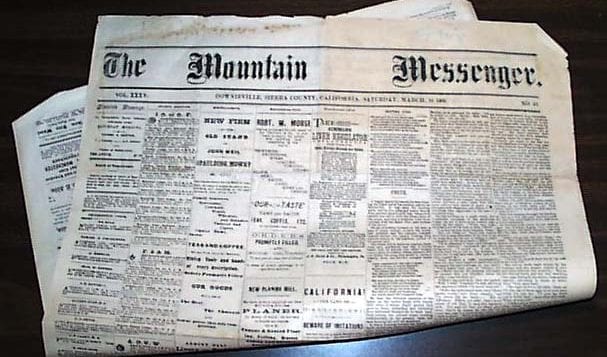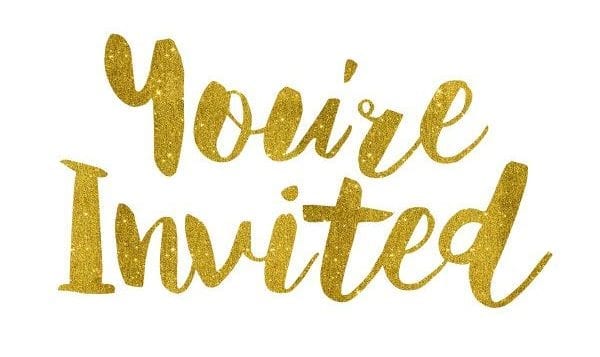By Leah S. Dunaief

This is a happy tale about a lifesaving rescue that particularly pleases me. It must also have pleased The New York Times since the paper gave it a full-page spread under the National news banner this past Monday. The hero is an unlikely 71-year-old retired computer programmer and labor economist named Carl Butz. A fourth-generation Californian, he was aware, like the some 300 other residents of Downieville in the mountainous northern countryside, that the local newspaper, the state’s oldest weekly, was folding with the retirement of its publisher. We know that newspapers across America have been dying, especially in rural areas, and this Sierra County town, like a movie set preserved from the Old West days, was about to become the latest “news desert.”
Downieville’s weekly, The Mountain Messenger, was founded in 1853 and was as constant a fixture over the years as a Thursday is in every week. Mark Twain wrote several articles for the paper that were “a few unremarkable stories,” according to the Messenger’s former publisher, Don Russell, who had run the paper for nearly 30 years and read Twain’s stories on microfilm before he sold it to Butz. “They were awful. They were just local stories, as I recall, written by a guy with a hangover.” Twain was reportedly hiding out there from the law, or so the legend goes.
Then one night Butz, a recent widower, was watching “Citizen Kane” on cable, and had an epiphany. “I can do that,” he decided. He made a deal quickly with Russell, who was a good friend, to pay in the “four figures,” plus assuming some of the paper’s debts, and he never looked at the books. Russell told him he was “a romantic idealist and a nut case,” because the paper was a losing proposition “and someone who would want it would be crazy.”
So why did he do it?
In a letter to the readers of the first edition, Butz explained. “Simply put, the horrible thought of this venerable institution folding up and vanishing after 166 years of continuous operation was simply more than I could bear.” The newspaper was “something we need in order to know ourselves.” The rest of the residents felt the same way, apparently, and the editor of an online news site in town said, “It was devastating for everybody that we were going to lose The Mountain Messenger.”
The paper’s publishing software, Butz learned, was from the mid-1990s. There was no website, no social media platform. The only other employee, Jill Tahija, has been with the paper 11 years and takes to work her small black-and-white dog, Ladybug. Tahija’s
business card reads, “She who does the work.”
The paper relies mostly on legal notices, from the county and other government offices, which bring in about $50,000 for the bulk of its revenue, has about 700 subscribers throughout the county and a print run of 2,400. “I’m not going to lose a million dollars but I know I’m going to have to subsidize some of it,” the new owner said. “My daughter is already aware that her inheritance is shrinking.”
Butz’s first edition was filled with the usual complement of local news stories: a supervisor’s meeting, wildfire prevention, the upcoming census and a local poetry competition. Russell, meanwhile, was on vacation with his wife, driving his RV up the coast — probably his first time off in three decades.
Downieville has become a popular destination as an old Gold Rush town at a fork of the Yuba River in distant western Sierra County. It has a corner saloon, one-lane bridges over the river, and the newspaper is located in a second-story office above a beauty salon on Main Street and next to the fire department, whose sign on the door reads, “Oldest volunteer fire department west of the Mississippi.” Gold mining and sawmills were once the economic engine. Now it relies on mountain biking and fly fishing. And the paper is a repository of the county’s history, with its vast archives.
Carl Butz has become to the The Mountain Messenger what Jeff Bezos is to the The Washington Post: A savior who cares who we were and where we are going.
I understand him.
















